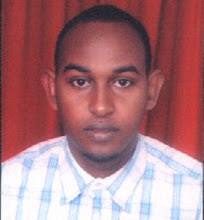Whether you ask about the carcasses of livestock baked white in the sun, the gaggle of people crowding around the district commissioner's door, or the wards of malnourished children lying listlessly in hospital beds, the explanation given is always the same.
"It's because of the drought", they say.
The failure of rains across arid parts of East Africa has brought misery to millions of people, affecting almost every aspect of life.
In this dry, dusty part of the world, every drop that falls helps people scrape a living from the land. If the rains don't come for a season people go hungry. If they fail twice in a row, as they have in Kenya's impoverished north eastern province, they begin to starve.
At the hospital in Wajir town, the paediatric ward is full of young mothers clutching the tiny, wasted forms of their children.
Doctors estimate admissions for severe malnutrition in children have risen by at least 25 per cent in recent months, and fear that the dozens of referrals they have seen could be the tip of a large and deadly iceberg.
"Some parents are reluctant to bring their children to the hospital because it is such a long journey, or they don't recognise the symptoms of malnutrition. Some think they can cure the problem by praying - they don't realise the children need treatment. Children could be dying because of this and we wouldn't know about it," says Dr Moses Menza, the chief medical officer at the hospital. Read more


